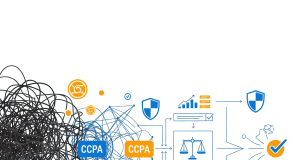In an increasingly digital world, the protection of personal data has become paramount. The Digital Personal Data Protection Act (DPDPA) 2023 is a significant legislative development aimed at safeguarding individuals’ privacy rights while fostering a secure digital landscape. As the Act comes into effect, businesses must prepare to comply with its stipulations to avoid penalties and maintain consumer trust. Here’s what you need to know.
Understanding the DPDPA 2023
The Digital Personal Data Protection Act 2023 introduces comprehensive regulations governing how businesses collect, store, process, and utilize personal data. The act seeks to:
- Establish Clear Data Protection Principles: It sets out fundamental rights and responsibilities regarding data handling.
- Enhance Individual Rights: Consumers will have greater control over their data, including rights to access, correction, and deletion.
- Promote Accountability: Organizations must demonstrate compliance through stringent record-keeping and risk assessments.
Key Provisions of the DPDPA
- Data Processing Regulations: Businesses can only process personal data if they have obtained explicit consent from individuals. This consent must be informed, unambiguous, and specific to the purpose of data collection.
- Data Minimization Principle: Organizations should only collect data relevant to their operations and avoid excessive data collection.
- Transparency and Notification: Companies must clearly inform individuals about the data being collected and how it will be used. Privacy notices must be clear, concise, and easily accessible.
- Data Protection Impact Assessments (DPIAs): Businesses are required to conduct DPIAs to assess risks associated with processing activities and ascertain mitigation strategies.
- Breach Notification Protocols: In the event of a data breach, companies are mandated to notify authorities and affected individuals within a specified timeframe.
- Enforcement and Penalties: Non-compliance can lead to substantial fines and reputational damage, underscoring the importance of adherence.
Steps for Businesses to Achieve Compliance
1. Conduct a Data Audit
Begin with assessing the types of personal data your business collects, processes, and retains. Identify where data is stored and who has access to it. This audit will serve as a foundation for compliance planning.
2. Review and Update Privacy Policies
Your privacy policy should clearly articulate how personal data is collected, processed, and protected. Ensure it aligns with the new requirements and is easily understandable for consumers.
3. Implement Robust Data Protection Measures
Enhance your data security infrastructure, including encryption, access controls, and regular security audits. This will not only protect data but also demonstrate your commitment to compliance.
4. Train Employees
Staff training on data protection principles and the specifics of the DPDPA is essential. Employees should understand the importance of safeguarding personal data and the procedures in place for compliance.
5. Establish Incident Response Plans
Prepare a response strategy for data breaches. This should include procedures for notifying affected individuals and the relevant authorities, as stipulated by the Act.
6. Designate a Data Protection Officer (DPO)
Depending on the scale of data processing activities, appointing a DPO may be necessary. This person will oversee compliance efforts and act as a liaison with regulatory authorities.
The Importance of Fostering a Culture of Compliance
Beyond legal obligations, embracing a culture of data protection can enhance consumer trust and foster long-term business relationships. Transparency and ethical data handling practices can bolster your brand reputation and provide a competitive edge in the marketplace.
Conclusion
As the Digital Personal Data Protection Act 2023 sets the stage for a new era in data protection, businesses must act decisively to ensure compliance. By understanding the Act’s provisions and implementing necessary measures, organizations can not only avoid penalties but also build trust with their customers. Prioritizing privacy and data protection is not just about compliance; it’s about demonstrating respect for individuals’ rights in a digital age.









